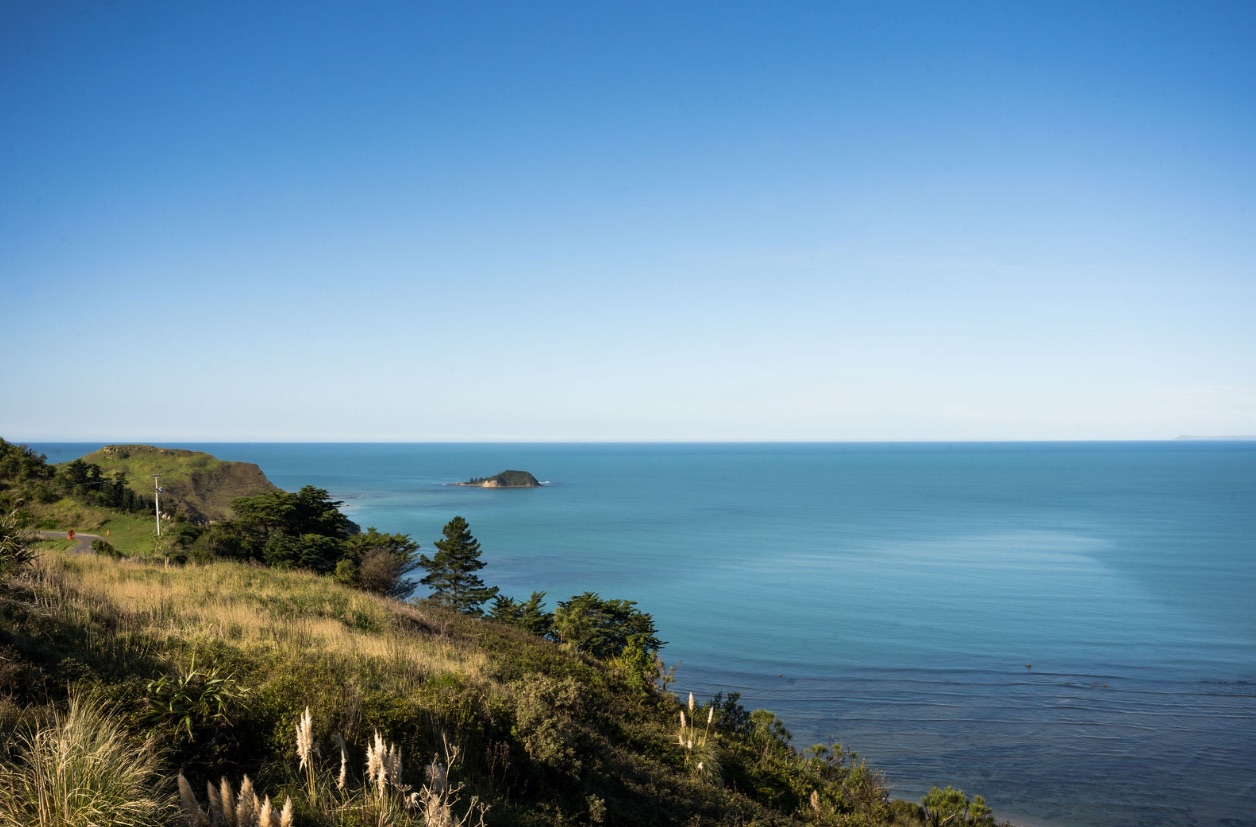What we have heard – Taiao
Whenua is more than just a commodity, it is our place to stand, it nourishes our physical, mental, spiritual and social wellbeing.
On this page

A view of Tuamotu Island, taken from the top of Titirangi
Kaiti Hill
Mahi mō te Taiao – Jobs for Nature initiative returned many people ‘to the whenua’.
Whenua is more than just a commodity, it is our place to stand, it nourishes our physical, mental spiritual and social wellbeing. The Mahi mō te Taiao – Jobs for Nature initiative returned many people ‘to the whenua.’ From a Te Ao Māori perspective this mahi was about ‘growing people’ and the new skills that people acquire can be considered a taonga that CARE-RSLG plays a role in helping Tairāwhiti to nurture. In a nutshell, to help facilitate new career pathways off the back of groundwork laid in Mahi mō te Taiao.
Mahi mō te Taiao employers provide on-the-job training and formal qualifications as part of their project funding. Formal qualifications offered include:
- conservation work
- trapping and planting
- project management
- administration
- Mātauranga Māori.
The development of soft skills is also considered important. Tairāwhiti had 25 projects totalling approximately $40m investment funded through Mahi mō te Taiao. This programme supports New Zealand's economic recovery from the impacts of COVID-19.
Around half of the projects have already ended with the remaining due to end in 2024, 2025 and 2026. Approximately 371 people will have been employed across the lifetime of these projects. We note that 16 of the 25 projects have stated that capability development is a key outcome.
As we tackle the rebuild from the impacts of Cyclone Gabrielle, we are aware of calls from the region to continue funding these projects. This is reflected in the recommendations from the Ministerial Inquiry into Land Use and the recovery planning process (Cyclone Gabrielle) which have advocated for the continuation of funding for the Mahi mō te Taiao projects.
We have already started preparing for the end of these projects by assessing the impacts on:
- workers
- project coordinators
- communities.
Our contribution to managing these impacts is to work with Mahi mō te Taiao funders and fund recipients to understand how to facilitate the transfer of kaimahi to other job opportunities. The first step in this transition process is to identify the skills and qualifications of nature-based workers. This will be the key action of this regional workforce plan refresh for CARE-RSLG.
Nature based workers
Nature-based workers possess unique skills and qualifications relating to conservation, land management, and environmental education. These skill sets prepare workers to move into industries like agriculture, forestry, and fishing which suggests that this is where redeployment could be likely.
Taiao-related training in Tairāwhiti is delivered by two organisations, Te Pūkenga and Tūranga Ararau, who provide qualifications at levels 3 and 4. The indications are that our region needs more of this type of training provision. We have been told that a lack of training programmes and clear pathways into Taiao roles results in rangatahi having to leave the region.
However, several local providers have expressed interest in expanding their training offerings. Examples for potential areas for growth include moving towards higher-level qualifications in things like:
- planning
- Resource Management Act
- urban development
- spatial management
- land-use capability
- long-term regional planning for environmental management.
Existing opportunities
There are existing opportunities in Tairāwhiti to transition Mahi mō te Taiao participants to further employment opportunities. Based on the experiences of the projects and the participants in them the opportunities to transition people to new employment follows a stepped approach:
- Identify skills and qualifications: The first step is to gain an understanding of the skills and qualifications that the Mahi mō te Taiao kaimahi have gained through the funded programmes.
- Match skills to new job requirements: The next step is to match the skills of nature-based workers to new job requirements. This involves looking for jobs in conservation, land management, forestry, environmental education, and other related fields.
- Commit to a coordinated approach: To effectively transfer skills and qualifications, a coordinated approach is needed. This involves supporting career development and recognizing the skills used in these projects.
- Expand skills through training: In addition to previous training, workers may need to expand their skills to aid in transitions. For example, habitat restoration workers could take courses in urban forestry to supplement their existing knowledge.
Taiao action
Action: Work with key regional stakeholders to identify the skills and qualifications of nature-based workers from the Mahi mō te Taiao projects.

